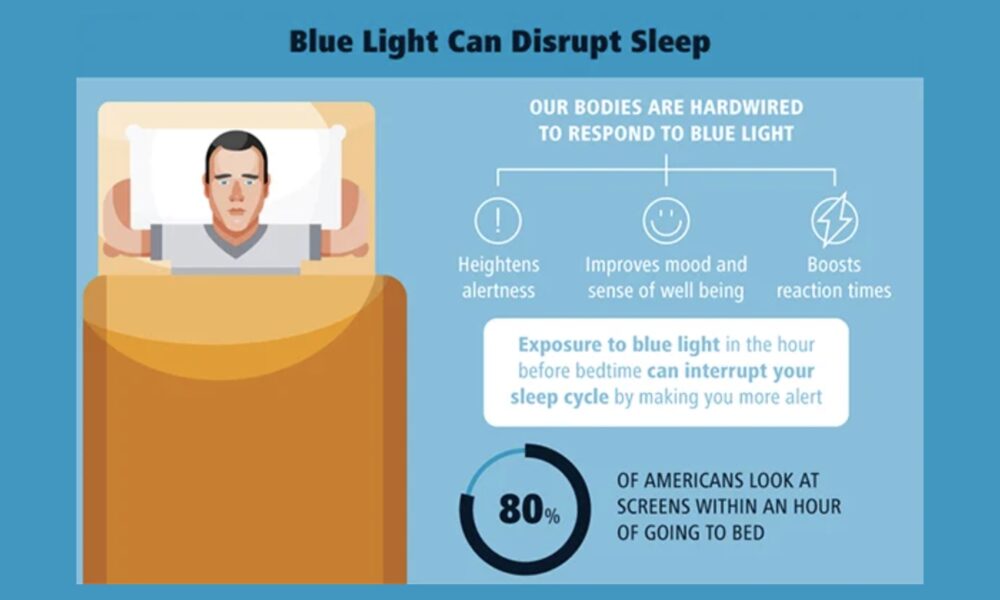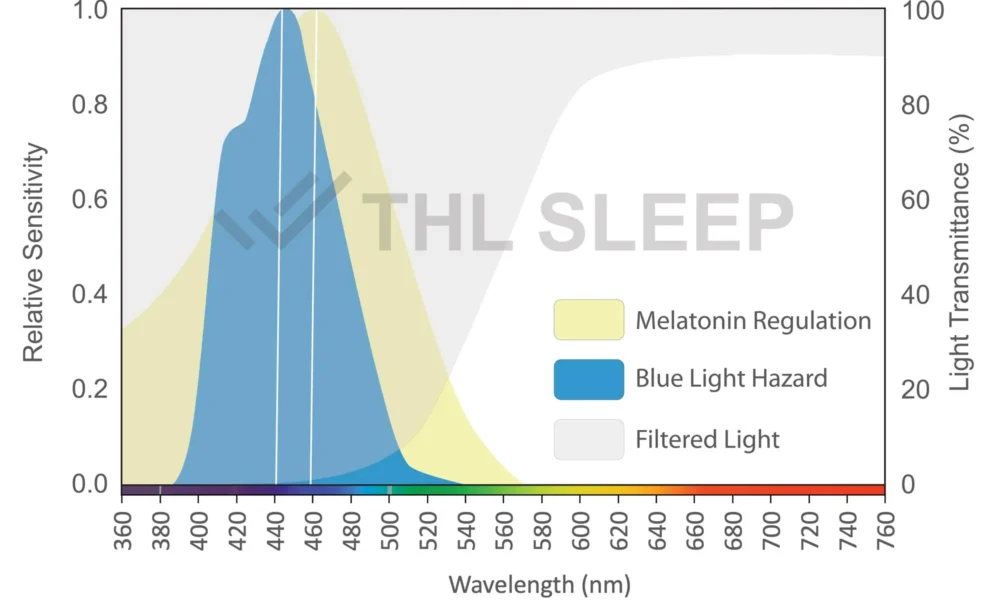- Home
- About
- Portfolio
Crush the Match – Medical School and Residency Platform
Food¢ense – Curbing Childhood Obesity and Food Waste
HealthStack – Shared and Jailed HIPAA Hosting $50
Marta Care – Let Us Help When You Can’t
MD Idea Lab – We Build Prototypes for Doctors
Nervcell – The Healthcare Web Browser
Patient Keto – Personalized Keto Medicine and Telehealth
SwipeChart – Rapid EMR Interface
Treatment Scores – Quantifying the Science of Medicine
Treatments – Diagnosed. Now What?
VIDRIO – Google Glass and EMR Interface
- Blog
- Contact
- Home
- Warp Core Health
- Blog
- Sleep Health
Category: Sleep Health
Reducing Blue Light Exposure: Effective Strategies for a Restful Night’s Sleep
- May 30, 2024
- Sharon Lojun, M.D., M.S.
- No Comments
In today’s digital era, our constant exposure to screens emitting blue light has raised concerns about its potential impact on sleep quality. Fortunately, there are several practical solutions available to minimize blue light exposure and promote a more restful night’s sleep. In this article, we will explore various strategies supported by research to help you reduce blue light exposure.
- Device Settings and Filters: Many electronic devices offer settings that allow you to reduce the amount of blue light emitted. By adjusting the display settings on your smartphone, tablet, or computer, you can decrease the intensity of blue light. Some devices even provide a “night mode” or “blue light filter” option, which can automatically adjust the color temperature of the screen to reduce blue light emission. Additionally, you can consider installing external screen filters or privacy screens that block or filter out blue light, providing an extra layer of protection.
- Blue Light Blocking Glasses: Blue light blocking glasses have gained popularity as a convenient solution to minimize blue light exposure. These glasses are designed to filter out or block a significant portion of blue light wavelengths, reducing its impact on your eyes and sleep patterns. Wearing blue light blocking glasses, especially in the evening hours when exposure to screens is common, can help mitigate the disruptive effects of blue light on your circadian rhythm. Clip-on versions, like the one you mentioned, offer a practical and versatile option for those who don’t want to give up screen time entirely.
- Environmental Modifications: Making changes to your sleep environment can also help reduce blue light exposure. Consider investing in blackout curtains or shades that effectively block external sources of light, including streetlights or ambient light pollution. By creating a dark and sleep-conducive atmosphere in your bedroom, you can minimize unnecessary exposure to blue light during nighttime hours.
- Time Management: While it may be challenging to completely eliminate screen time before bed, establishing a buffer period between screen use and sleep can significantly reduce the disruptive effects of blue light. Aim to limit screen time, especially in the two to three hours leading up to bedtime. During this time, engage in relaxing activities that promote winding down, such as reading a book, practicing mindfulness or meditation, or listening to calming music. This transition period allows your body to adjust and prepare for restful sleep.
It’s important to note that the effectiveness of these strategies may vary from person to person. Experimenting with different approaches and finding what works best for you is key. Additionally, it’s always advisable to consult with healthcare professionals or sleep specialists for personalized advice tailored to your specific needs and circumstances.
By implementing these solutions and reducing blue light exposure, you can support your natural sleep-wake cycle and enhance the quality of your sleep. Prioritizing good sleep hygiene, alongside other healthy lifestyle practices, is crucial for overall well-being and optimal functioning during waking hours.
In summary, reducing blue light exposure is a vital step in promoting restful sleep. Whether through adjusting device settings, using external filters or blue light blocking glasses, modifying your sleep environment, or managing your screen time effectively, incorporating these strategies into your daily routine can have a positive impact on your sleep quality and overall health. Remember, small changes can make a big difference when it comes to ensuring a good night’s sleep.
Author: Sharon Lojun, M.D., M.S.
Physician Informaticist
Founder of Patient Keto
Founder of Warp Core Health
References
- Settings on Devices: Cain, N., & Gradisar, M. (2010). Electronic media use and sleep in school-aged children and adolescents: A review. Sleep Medicine, 11(8), 735-742. doi: 10.1016/j.sleep.2010.02.006
- External Screen Filters: Figueiro, M. G., & Rea, M. S. (2012). The effects of red and blue lights on circadian variations in cortisol, alpha amylase, and melatonin. International Journal of Endocrinology, 2012, 1-9. doi: 10.1155/2012/461739
- Glasses: Chellappa, S. L., Steiner, R., Blattner, P., & Oelhafen, P. (2017). Got rhythm?—Better sleep with customized light and sleep therapy. Journal of Biological Rhythms, 32(4), 322-330. doi: 10.1177/0748730417713572
- Curtains: Bedrosian, T. A., & Nelson, R. J. (2013). Timing of light exposure affects mood and brain circuits. Translational Psychiatry, 3(3), e249. doi: 10.1038/tp.2013.27
The Importance of Sleep Health: Optimizing Your Rest for Overall Well-being
- June 14, 2023
- Sharon Lojun, M.D., M.S.
- No Comments
Getting quality sleep is essential for our overall health and well-being. It not only affects our physical health but also has a significant impact on our mental and emotional well-being. In this article, we’ll explore the importance of sleep health and discuss various factors that can influence the quality of our sleep.
Adaptive and Maladaptive Cortisol: The Impact of Stress Hormones Cortisol, commonly known as the stress hormone, plays a crucial role in our sleep-wake cycle. In healthy individuals, cortisol levels naturally rise in the morning to help us wake up and stay alert throughout the day. However, problems arise when cortisol levels become dysregulated, leading to maladaptive responses that can disrupt our sleep patterns. Excessive exposure to stress, screen time, and constant alerts can exacerbate cortisol levels, making it challenging to unwind and fall asleep at night.
Blue Light and Silence: Creating a Sleep-Conducive Environment In today’s digital age, we are constantly exposed to screens emitting blue light, which can interfere with our natural sleep rhythms. To counteract this, it’s beneficial to establish a blue light curfew by avoiding screens for at least an hour before bed. Additionally, creating a quiet and peaceful environment can help signal to your body that it’s time to rest. Consider incorporating relaxation techniques such as meditation or gentle stretching before bedtime to promote a calm state of mind.
Sleep Problems and Night Shifts: Finding Balance Night shift work can disrupt our body’s natural circadian rhythm, making it difficult to achieve restful sleep during the day. If you find yourself working night shifts, it’s crucial to prioritize your sleep by creating a dark and quiet sleeping environment. Invest in blackout curtains or a sleep mask to block out sunlight, and use earplugs or white noise machines to minimize distractions. Establishing a consistent sleep schedule, even on your days off, can also help regulate your body’s internal clock.
Mental Health and Sleep: A Bidirectional Relationship The relationship between mental health and sleep is bidirectional – poor sleep can contribute to mental health issues, and mental health issues can disrupt sleep patterns. If you’re experiencing difficulties sleeping due to stress, anxiety, or depression, it’s essential to address these underlying concerns. Seek support from healthcare professionals who can help you develop coping strategies, such as cognitive-behavioral therapy for insomnia (CBT-I), which can improve both sleep and mental well-being.
Exercise Patterns: Promoting Restful Sleep Regular exercise can significantly impact the quality of our sleep. Engaging in physical activity, especially earlier in the day, can help regulate our body’s internal clock and promote restful sleep at night. However, intense exercise close to bedtime may have stimulating effects, making it harder to fall asleep. Find a balance that works for you and consider incorporating activities such as yoga, stretching, or low-impact exercises in the evening to unwind and prepare your body for a good night’s sleep.
In conclusion, prioritizing sleep health is crucial for our overall well-being. By understanding the impact of cortisol, implementing strategies to reduce screen time and exposure to blue light, and creating a sleep-conducive environment, we can improve our sleep quality. Additionally, recognizing the challenges of night shifts, addressing mental health concerns, and incorporating exercise patterns that support restful sleep can all contribute to a healthy sleep routine.
Remember, sleep is a vital component of a healthy lifestyle, and if you consistently struggle with sleep problems, it’s important to consult with a healthcare professional who can provide personalized guidance and support.
Author: Sharon Lojun, M.D., M.S.
Physician Informaticist
Founder of Patient Keto
Founder of Warp Core Health
Recent Posts
- Protected: Warp Core Health: Building a Custom AI Model for Transforming Healthcare
- The Intersection of Healthcare, AI, Clinical Informatics, and Machine Learning
- Accessing Siloed EMR Systems with FHIR: Connecting to Multiple EMRs
- How AI and Informatics Are Transforming Healthcare
- How AI Can Transform Healthcare Applications
Categories
- ApoB
- Artificial Intelligence
- Autophagy
- Biochemistry
- Biomedical Informatics
- Biostatistics
- Blood Glucose
- CAC
- Carbs
- CCD
- CDA
- Clinical Informatics
- Coding Bootcamp
- Coronary Artery Disease
- COVID-19
- Cybersecurity
- Data Science
- Diabetes
- Diet
- EHS
- EMR
- Epidemiology
- Evidence Based Medicine
- Fats
- FHIR
- Fiber
- Generative AI
- Global Health
- Health Administration
- Health Informatics
- Health IT
- HIPAA
- HL7
- Hyperglycemia
- Hypoglycemia
- ICD 10
- Intermittent Fasting
- Ketogenic Diet
- Machine Learning
- Macronutrients
- MCT Oil
- Metabolic Health
- Metabolic Syndrome
- Minerals
- Mitochondria
- MySQL
- Neurology
- Nutritional Ketosis
- Nutritional Neurology
- Nutritional Psychiatry
- PHP
- PHR
- Programming
- Prompt Engineering
- Proteins
- Prototypes
- Public Health
- Python
- Recipes
- Sleep Health
- Stroke
- Uric Acid
- Vegan and Vegetarians
- Vitamin D
- Vitamin K2
- Vitamins


